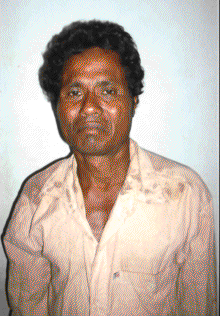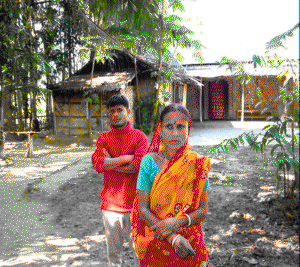Archives
Indians deported Illegal migrants safe
A 42 year old banana vendor Manik Das of Tikalpar village, 30 km from Silchar, in Cachar district was picked up by the police one day for deportation. The chairman of the Foreigners’ Tribunal in Silchar Ahindra Chowdhury said he had to issue an ex parte judgement on Manik Das when the police had branded him a foreigner. However, subsequently, the judge passed a stay order on the case under Foreigners’ Tribunal order, 1964, and asked the police to verify their antecedents.
But the over smart police after taking him into their dragnet brought him to the deportation centre of Mahisasan in Karimganj district and handed him over to the BSF who pushed him to Bangladesh. A BDR patrol team spotted him in a village in Sylhet and sent him back to Karimganj and since then he has been missing.
Chanchala Das’ wife could hardly believe that a man who was born on Indian soil and had Indira Awas in his name could be treated so shabbily in the name of deporting immigrants. She said her husband was born in Cachar in 1965 and had even voted in the Assembly and Parliamentary elections. She recalled that Manik’s father had to make a bone-chilling escape from riot-ridden Bangladesh to Cachar in 1964 with his pregnant mother-in-law.
Even more pathetic is the tale of the Saha family of Hojai town. Three members of the family which included Dinesh Chandra Saha, his two sons Bijan and Piyush despite having valid documents were picked up by the police in the wee hours and deported to Bangladesh through Majisasan check post. Ramani Mohan Saha, father of Dinesh Chandra, who left the then East Pakistan entered Tripura in 1956 and obtained citizenship of the country had to die with the stigma of a foreigner.
Several cases of Hindus being branded as illegal migrants by the Foreigners’ Tribunal Act have come to the fore despite possession of all valid documents in favour of their citizenship. |
It is all the more tragic that Ramani Mohan Saha was a freedom fighter who sacrificed everything to live like any dignified person as a citizen of his motherland. From Tripura Ramani Saha came to Assam and settled down at Hojai. His registration as a citizen was listed as 5 (1) (a) 5 (1) B 1965. His name also figures in the voters’ list of 1966. Dinesh Chandra Saha and his two sons were born in Hojai. Still all of them were served with foreigners’ notices by the Tribunal. 
Rita and Babli, the two house-wives, according to information, are now left in the house, almost deserted and in desolation. Their misery and mental agony can well be understood. Another resident of Hojai, another distinguished freedom fighter, Prafulla Saha, died of shock when served with foreigner’s notice. According to information, around two lakh Hindu Bengalis are listed as ‘D’ voters by the election department and might face deportation like Das and the Sahas.
Same is the fate of Ajit Das, a resident of Chandmaribil near Shishu Mandir of Ward no. 26 of Silchar. He has been declared a foreigner notwithstanding all the documents to substantiate that he is an Indian citizen. He was served with order dated 11-06-08 by SP of the district Violet Baruah, directing officer-in-charge of Silchar police station to push him back to Bangladesh if he could not remove himself within 7 days of the serving of this order. The Foreigners’ Tribunal put him in the stream of foreigners coming to Assam on or after 25-03-71 from Bangladesh. On receipt the notice, Ajit Das produced relevant documents to show that his father Nitya Lal Das, after entering India from Bangladesh got himself registered as Indian citizen on January 1, 1955 under provisions of section 5 (1) (a) of the Citizenship Act, duly authenticated by the registration authority, B.Hazarika.
Ajit Das exercised his franchise in the general election 2001 vide electoral roll number 048906 and holding number 75, Ambikapur part III. In the elections of 2006, he cast his vote vide electoral roll number 302321 under holding number 804. Besides, he has a family ration card.
After seeing all these examples, one wonders what the Tribunal is doing. Is it actually checking documents and papers or are the authorities taking matters into their own hands and making a great mess of things.
Jyoti Lal Chowdhury

